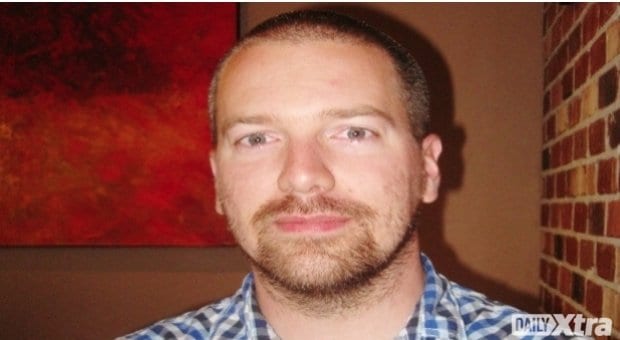By his own fairly cheerful admission, Richard Engelhardt is not an inspiring leader.
He’s more of a quiet thinker, an organizer not a flag-bearer. But that doesn’t mean his ideas aren’t worth considering, especially when it comes to a new queer community centre.
Engelhardt is the president of OUR Spaces, a fledgling organization that emerged from a town hall Xtra hosted in 2009 to contemplate a new community centre. The room was packed, the ideas plentiful. A sign-up sheet circulated, people connected, and a new group was born, determined to create the full-service gathering hub of our dreams.
It didn’t happen.
The group, initially strong, soon floundered, lost members, struggled with the basics of registering a not-for-profit society with charitable status. Each year’s annual general meeting yielded similar headlines: “OUR Spaces inches along.”
Until now. Maybe.
After a shaky, protracted start, the organization, though down to just 20 members and five directors, seems to be on more solid footing, ready to receive new members, envision new dreams and move forward toward its goal. If only the moment hadn’t passed.
Or has it? With the city’s $7 million decision last December to help Qmunity spearhead the creation of a new community centre, OUR Spaces’ rise from its own ashes may be just in time to offer some valuable ideas, if only anyone would listen.
“A lot of people wrote us off after our first couple of years,” Engelhardt readily acknowledges. “They were quite rocky. I don’t blame the community for being skeptical.”
Valid skepticism aside, Engelhardt has a model for a multipurpose community centre that offers a different vision than Qmunity’s proposed 10,000 square feet.
“I don’t think that 10,000 square feet is adequate,” he says. “I think there’s a bigger appetite for queer space than just Qmunity’s needs.”
Engelhardt would rather see a shared-space model where multiple community organizations come together under a non-profit landlord — “a more encompassing facility,” he says, home to any queer organization that wants to join.
He sees a multi-storey hub, perhaps resembling the Robson Public Market, with both non-profits and businesses circling an open, soaring, multi-purpose area. He sees arts spaces, health services, meeting rooms and swing spaces that people can book, and permanent social spaces where a wide cross-section of the community can connect.
The more groups and activities offered, the wider range of community members will feel drawn to the new facility and moved to support it, he suggests.
“Having a community space is vital,” he says, “for a community to flourish.”
Engelhardt’s vision is not new. It reflects the findings of Qmunity’s own 2007 feasibility study, where 95 percent of the 900 respondents signalled a desire for social and arts spaces in addition to Qmunity’s core services.
“People want a building that’s three or four storeys high, that can handle arts and culture, that includes a coffee shop or social space, as well as space for services,” study facilitator Betty Baxter told Xtra at the time.
These findings were echoed two years later in the town hall that launched OUR Spaces and by Little Sister’s co-owner Jim Deva, who sat on the feasibility study’s advisory committee. He says Qmunity reined in its vision, despite overwhelming community feedback, after a consultant expressed (legitimate) concern about its ability to raise the money required for such an ambitious plan.
Which once again brings us back to the question of 10,000 square feet. Can we afford to dream bigger? The models exist; the desire is clearly there. But where’s the money?
If they build it, will we fund it? Would you be willing to contribute? To which model?
If we don’t dream a little bit, Engelhardt warns, “we’re going to be stuck with a very small facility.”
Robin Perelle is the managing editor of Xtra Vancouver.

 Why you can trust Xtra
Why you can trust Xtra


